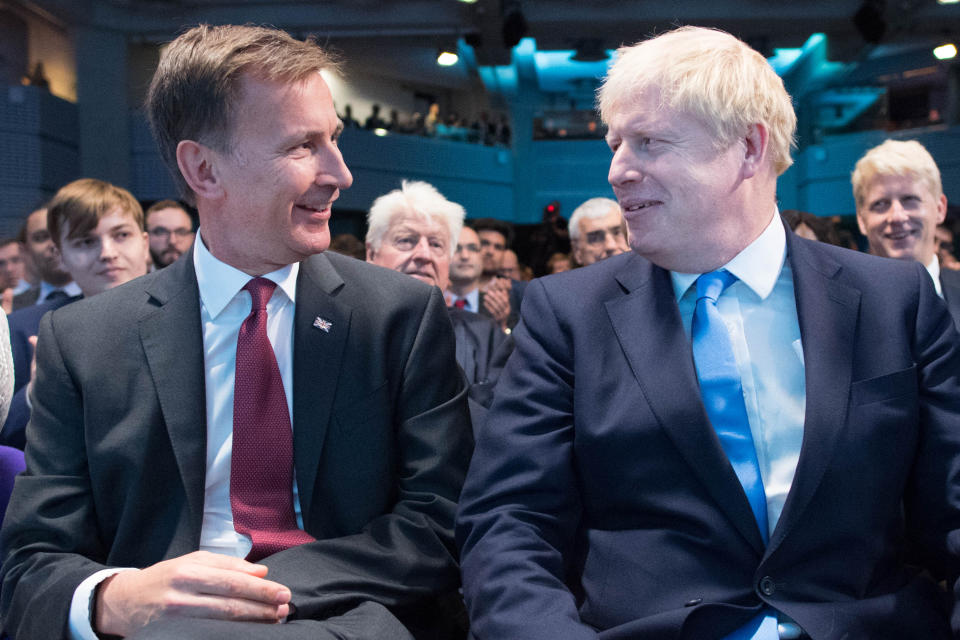One million Britons will have coronavirus by end of next week, Jeremy Hunt warns
One million Britons will have coronavirus by the end of next week, a former health secretary has warned.
Conservative MP Jeremy Hunt criticised the government’s policy of only testing patients in hospital for COVID-19, the disease caused by coronavirus.
He said the rate of infection meant one million people in the UK will have coronavirus by the end of next week.
Latest coronavirus news, updates and advice
Live: Follow all the latest updates from the UK and around the world
Fact-checker: The number of COVID-19 cases in your local area
Explained: Symptoms, latest advice and how it compares to the flu
Speaking in the House of Commons while debating emergency coronavirus legislation on Monday, hours before Boris Johnson announced new stringent measures, Hunt said Britain had fallen behind other nations with its response to the pandemic.
There have been 6,650 cases of coronavirus in the UK, with 335 deaths, according to official figures.

But Hunt said scientific modelling which estimates 1,000 cases for every death means the UK currently has about 300,000 people with coronavirus.
He said: “According to the same modellers, the number of cases is doubling every five days, which means that at the end of next week we will have about one million cases or more in this country.

“Unless we radically change direction, we will not know where those one million cases are.”
Hunt said: “Here, all our public focus has been on social distancing, but testing and contact tracing to break the chain of transmission are every bit as important, if not more important.
Watch the video below
“Those countries that have turned back the virus rigorously track and test every case and every suspected case, then identify every single person with whom a COVID-19 patient has been in contact to take them out of circulation.
Read more: Minister says coronavirus outbreak is ‘frightening’
“As a result, those countries have avoided the dramatic measures and some of the economic damage that we have seen in Europe.”
He said South Korea, Taiwan and Singapore have all experienced low deaths tolls through testing and tracing.
“Ten days ago in this country, we went in the opposite direction, and stopped testing in the community,” he said. “How can we possibly suppress the virus if we do not know where it is?”
Hunt also criticised Johnson, who defeated him in last year’s Tory leadership contest, for his handling of testing.

Hunt said: “The prime minister talked about expanding testing from 5,000 to 10,000 to 25,000, which is welcome. He even talked about 250,000 tests a day, which would be more than anywhere in the world.
“I welcome that ambition, but ambition is not the same as a national plan, and we have not seen a national plan on testing.”
Health workers, scientists and politicians have all criticised the government’s approach to testing, which means only those in hospital are tested, and NHS staff are excluded from tests.

 Yahoo News
Yahoo News 

